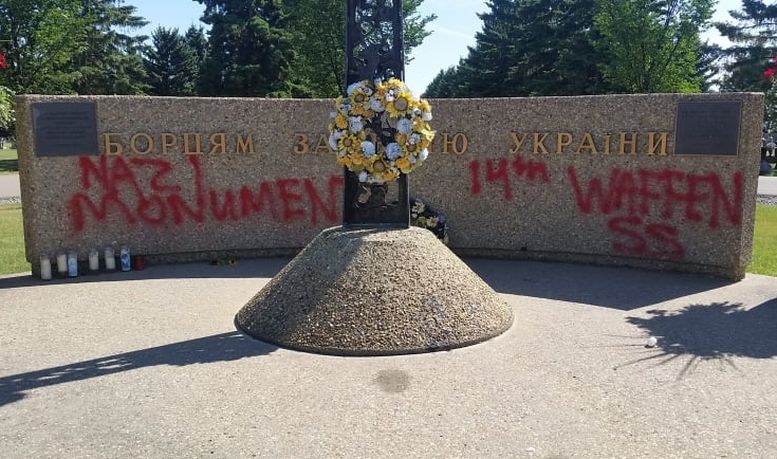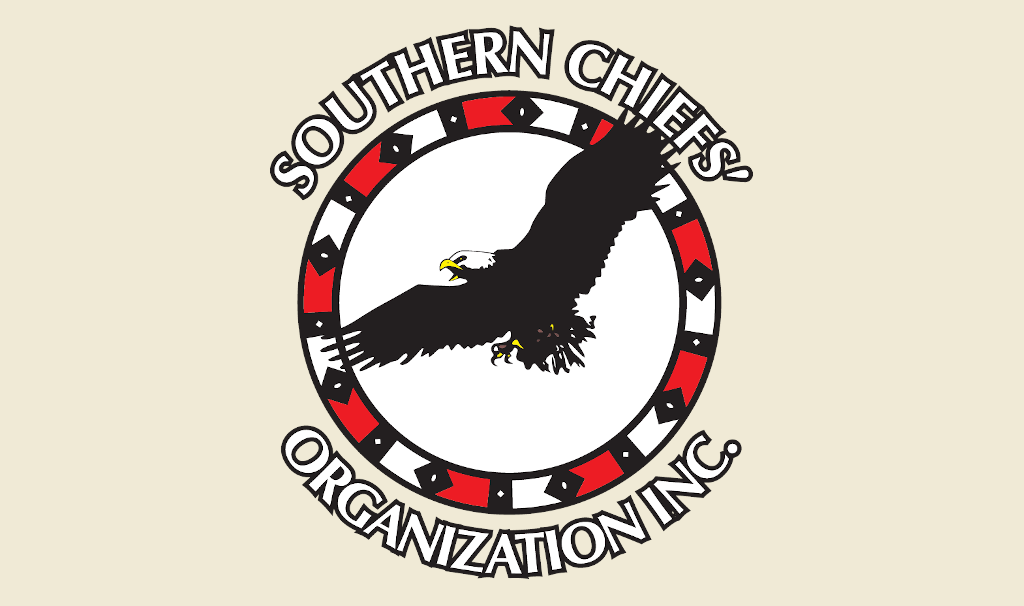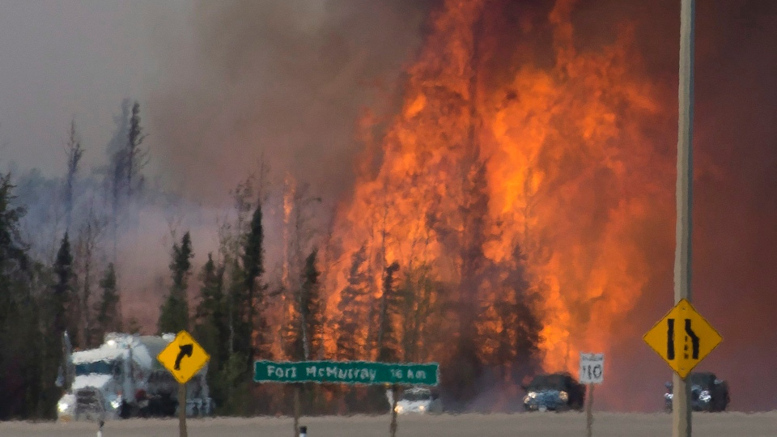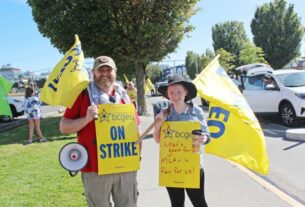On Friday, September 22, Speaker of the House of Commons and Liberal Member of Parliament Anthony Rota introduced to the chamber “a Ukrainian hero and a Canadian hero.” He was not referring to Ukrainian President Volodymyr Zelenskyy, seated a few metres away during the Ottawa stop of his North American tour to rally support for his government, though the language used to describe him by the luminaries in attendance was no less celebratory. No, the now ex-Speaker was lauding “a Ukrainian-Canadian war veteran from the Second World War, who fought for Ukrainian independence against the Russians.” The Speaker was referring to 98-year-old Yaroslav Hunka of North Bay, Ontario, part of Rota’s riding of Nippising–Timiskaming.
Thus began one of the most embarrassing episodes of Justin Trudeau’s eight years as prime minister, one which could further hasten his walk to the exit doors as Liberal polling support continues the downward spiral it began in the summer.
In the unlikely event that you didn’t catch what was objectionable about Rota’s statement, don’t worry, you’re in plentiful company. Not one of the more than 300 MPs in attendance seemed to register that “[fighting] for Ukrainian independence against the Russians” meant fighting for Nazi Germany in its war of extermination against the Soviet Union, of which Ukraine was a part. Zelenskyy stood and clapped. Trudeau stood and clapped. Finance minister Chrystia Freeland, a Ukraine expert with an interesting family history, who is the most likely pick for next Liberal leader, beat the rest of the house to their feet. Pierre Poilievre, Jagmeet Singh, Yves-François Blanchet, and every elected member of their respective parties were all either too ignorant to understand what had been said or too cowardly to even quietly remain seated. (And it’s fair to wonder if some did understand and cheered all the louder because of it.) They all stood and saluted the man who, in younger and healthier days, volunteered and fought for the 14th Waffen Grenadier Division (1st Galician) of the SS. On February 28, 1944, the Galician Division unit massacred between 500 and 1,200 Polish civilians in the village of Huta Pieniacka, including by forcing them into barns and then burning them alive.
Hunka was fortunate enough to survive the war and fortunate again that the victorious Western Allies had desire for the skills of SS veterans after the war. The working classes of these countries were demanding major reforms after the long years of the misery of the Depression and the sacrifices of war. Reforms such as home-building programs or public health care might not guarantee social peace — the workers, many of whom had been steeled by the war, might form powerful organizations and fight for more than their masters were willing to give. A counterforce was necessary.
Hunka himself emigrated to the United Kingdom after the war, where he married. He and his wife Margaret then moved to Canada in 1954. While Hunka’s individual political activities after arriving in Canada are not a matter of public record, the federal government and the RCMP Security Service (predecessor to the Canadian Security and Intelligence Service, Canada’s current domestic and foreign spy agency) were very interested in fascist-aligned European immigrants to Canada — not to protect the public from them, but to use these erstwhile enemies against the public, especially rebellious workers. The Ukrainian and other communities of the former Russian Empire in Canada were among the most left-wing in the country. They were miners, lumberjacks, factory workers, and farmers who remembered their lives of poverty and oppression under the tsars and were eager to fight against it in Canada. Many were also inspired by the 1917 Russian Revolution, which gave national freedom to their peoples. Ukrainian and Finnish immigrants made up a large part of the Communist Party of Canada’s membership. This party, in spite of its Stalinist nature starting in the 1930s, nonetheless played an important role in some labour struggles and union locals.
In 1940, the government forcibly disbanded several leftist Ukrainian Canadian organizations and imprisoned leading members, and aided in setting up a more acceptable replacement, the Ukrainian Canadian Council, today called the Ukrainian Canadian Congress. (A “Yaroslav Hunka” is listed as a donor on their website.) In 1950, a secret directive of Prime Minister Louis St. Laurent’s cabinet allowed former Ukrainian SS servicemen to immigrate to Canada —historian Irving Abella said in a 1997 60 Minutes interview that “one of the ways of getting into the country of Canada during this period was by showing the SS tattoo; this proved that you were an anti-communist.” That same year, a right-wing bombing of Toronto’s Ukrainian Labour Temple during a children’s concert wounded ten attendees. Perhaps it’s not a coincidence that Hunka himself ended up in Northern Ontario — one declassified RCMP report from 1961 approvingly described organized right-wing Ukrainians and Hungarians attacking a union hall in Sudbury in the service of Inco Ltd., a Canadian mining company, which at the time was the world’s largest producer of nickel.
After a day of increasing pressure from the other parties, Rota apologized and attempted to fall on the grenade by claiming that he alone was responsible for Hunka’s invitation and acknowledgement. But when Liberal cabinet members began to turn on him on Tuesday, September 26, he realized his number was up and he became the first House Speaker forced to resign. The following day, Trudeau apologized on behalf of Parliament as a whole. He and much of the media have attempted to tamp down on criticism as beneficial to “Russian propaganda.” Incidentally, it is highly unlikely that the powerful Prime Minister’s Office would have allowed this sort of loose end for such a high-profile event, but the matter of who allowed an unrepentant fighter for Nazism into the event, or whether they knew of his background, is secondary. There are swastika-tattooed neo-Nazis in both Ukraine’s and Russia’s militaries and associated combat forces, and Canada’s as well — a fact that is bizarre not least for the fact that both Ukrainians and Russians (and all Slavic peoples) were deemed racially inferior in Nazi ideology and would have constituted a slave class in Eastern Europe had Hitler defeated the USSR.
The federal government’s 1985–86 Deschênes Commission, established thanks to pressure from Jewish groups after rumours that infamous Nazi human-experimenter Joseph Mengele was living in Canada, revealed that while Mengele had never been in the country thousands of other Nazis and collaborators were living comfortably here, including Lithuanian police chief and mass murderer of Jews Antonis Kenstavicius, as well as several who would become prominent university professors.
Bolshevik leader Vladimir Lenin fought within his party for the national rights of Ukraine and the other constituent nations of the defunct Russian Empire, whose overall population was 57 percent non-Russian. The overwhelming majority of Ukrainians who fought in the Second World War gave their blood to defeat Hitler. That even a small percentage would eagerly become a part of the Nazi death machine, as Hunka did, can be blamed primarily on Joseph Stalin, whose economic zigzags and mismanagement helped to cause a 1930-33 famine throughout the southern part of the Soviet Union including Ukraine, though claims that this was a deliberate ethnically targeted attempt to wipe out the Ukrainian people in particular is untrue. And Stalin’s dictatorship exiled and murdered countless workers and peasants for as little reason as a perceived opposition to his chauvinistic and anti-democratic caricature of socialism. These victims would share Stalin’s prison camps with the members of the Left Opposition of which Socialist Alternative draws our political heritage. They heroically fought against the Russian bureaucracy and for an international revolution, which could have stopped Hitler’s seizure of power long before it happened.
Today, we must denounce the Canadian government’s historical blindness and the actions of previous governments who embraced and utilized Nazis in the 1940s and 1950s. Those few who are still alive should be prosecuted in Canada or abroad to face long-belated punishment for their crimes after decades of undeservedly peaceful lives. And Canada cannot allow their ideological heirs, whether of Ukraine’s neo-Nazi Azov Regiment or Russia’s mercenary Wagner Group or other right-wing combatants in the current war, to settle in Canada in the future. The monuments to the Galician Division (which was later renamed to “First Ukrainian Division”) in Edmonton and in Oakville, Ontario should be removed — or better yet, publicly demolished. And we must fight as well against Canada’s continued delivery of weapons to Ukraine. This is not because of the past crimes of a small minority of that country but because of their funnelling to current far-right formations who will use them against the Ukrainian working class in the future and because NATO’s strategy is a long and painful bleeding of both countries, which is in no way in the interest of the large majority of the Ukrainian people. An internationalist working-class anti-war movement to defeat Putin and Zelenskyy and the right-wing nationalist forces which support both of them is and will remain Ukraine’s only hope.




